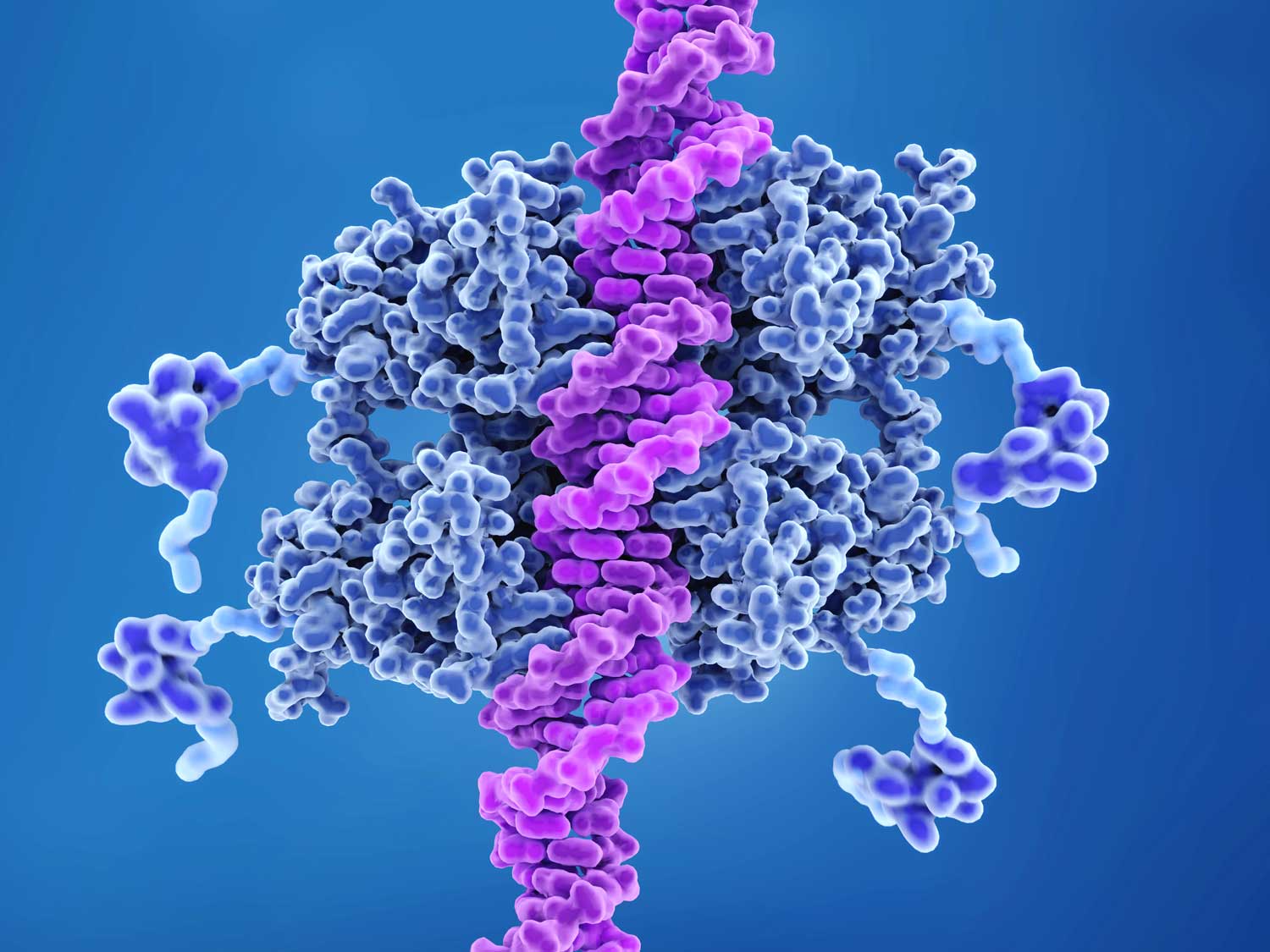
p53-gene
p53 bound to DNA p53 prevents cancer formation and acts as a guardian of the genome. Mutations in the p53 gene contribute to about half of the cases of human cancer
Mutations in the TP53 Gene are where the most frequent alterations in human cancers show. These alterations cause Li-Fraumeni syndrome, creating a predisposition to a wide spectrum of early-onset cancers. Worldwide studies of this Gene are bringing new Gene Therapies to market. Since over 50% of human cancers carry loss of function mutations in p53 gene! This gene is very popular.
The p53 protein is located in the nucleus of cells through our entire body, it binds to our DNA. Our DNA can become damaged. How it becomes damaged can be through toxic chemicals, think of those toxins we might be putting inside our body that many healers, doctors, and holistic professionals warn us about. It can also be caused through radiation (throw out that microwave!) or UV rays, the main discussion involving your mother always saying “Put on Sunscreen” as you run along the beach frolicking in our beautiful sun! Truth be told this p53 protein plays a critical role in determining whether the DNA will be repaired or damage. DNA CAN be repaired. Magical right? p53 can activate other genes to fix the damaged DNA. Wow you say, yes I say Wow too! If the DNA cannot be repaired, this protein generated prevents the cell from division and then it will undergo signals to create apoptosis (death). By stopping cells with mutated or damaged DNA from dividing, p53 helps prevent the development of tumors. p53 is essential for regulating DNA repair and cell division, this is why it is called the “guardian of the genome” this must be why there is so much discussion about this guardian of our bodies well being.
With all our lives being changed by Cancer, it is a perfect time for us to launch our TP53 kit. This kit is an oligonucleotide-based FISH assay designed to provide the highest resolution to scientists and cancer researchers, giving them the lowest background, and lowest limit of detection available. By modifying the hybridization conditions and eliminating strand degradation steps. With 3x the relative signal; 3x the resolution and 6x the signal-to-noise ratio; and 50% lower background, compared to similar oligonucleotide assays. Pinpoint probes can be designed for a wider range of targets and target sizes. This is extremely important because you can detect these mutations early on and pinpoint your targeted areas of study. With KromaTiD’s probe kit you can easily detect mutations with variable breakpoints free of repetitive sequences, and no blocking required, providing Robust performance and consistent hybridization quality. A must have for any scientist studying the Guardian of the Genome, and future cancer gene therapeutic companies!
Visit KromaTiD today to learn more about our kit for the tp53, guardian of the genome.
